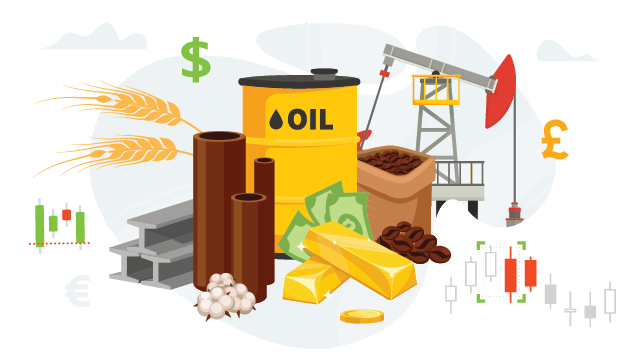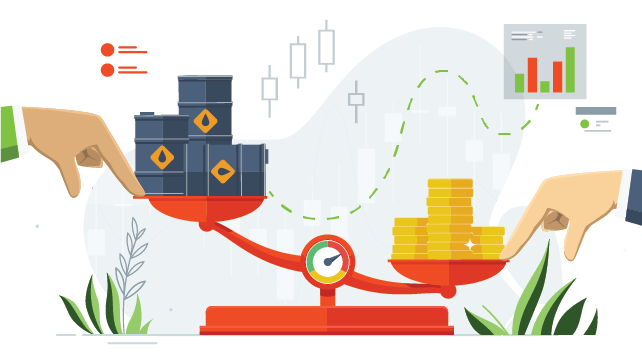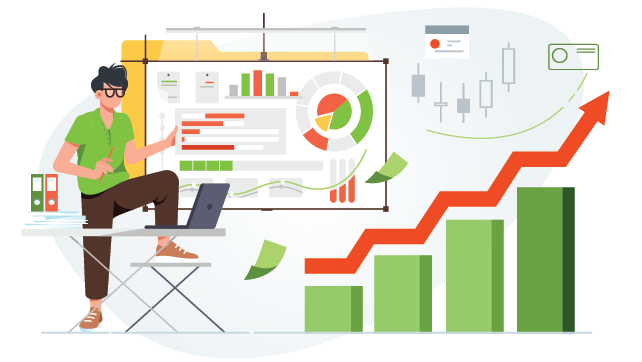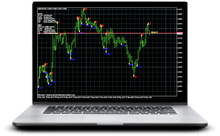¿Qué Son Materias Primas y Cómo Operarlas?

La información no es un consejo de inversión.
Desde principios de la civilización humana, las materias primas han sido un activo de inversión vital. En resumen, una materia prima es un bien o producto básico que la gente compra y vende. Por lo general, las materias primas son componentes básicos de bienes y servicios más complejos.
El trading de materias primas abarca la compra y venta de una amplia gama de instrumentos, incluyendo petróleo y gas, metales y otros productos de procesamiento primario como café, maíz y azúcar. Para los inversores, las materias primas son una forma importante de diversificar sus portafolios de trading.
Las materias primas son inversiones riesgosas porque su mercado se ve afectado por circunstancias imposibles de predecir: patrones climáticos inusuales, epidemias, desastres naturales y otros provocados por el hombre. Si deseas operar con materias primas, siempre debes mantenerte actualizado con las últimas noticias.
¿Qué tipos de materias primas existen?
Hay cuatro categorías principales de materias primas en el mercado:
- Agrícola: productos básicos como granos de café, maíz, azúcar, etc.
- Energía: productos derivados del petróleo como petróleo y gas.
- Metales: metales preciosos como oro, plata, platino y metales básicos como el cobre.
- Ganadería: animales domésticos que producen bienes como carne, huevos, leche, pieles, cuero, lana, etc.
Las materias primas también se dividen en duras y blandas. Las materias primas duras son recursos naturales que deben minarse o extraerse (oro, petróleo, etc.), mientras que las materias primas blandas son productos agrícolas o ganaderos (trigo, azúcar, pieles, etc.)

¿Cómo operar materias primas?
El trading de materias primas no difiere mucho del trading de pares de divisas. Pero demos un vistazo a las instrucciones paso a paso sobre cómo hacerlo:
- Elige un broker
FBS ofrece excelentes productos, buen servicio y sin comisiones. Con FBS, puedes acceder a las más grandes materias primas que se operan en el mercado: Paladio, Platino, Plata y Oro.
- Elige comprar o vender
Después de elegir una materia prima para operar, debes decidir si deseas comprarla o venderla. Si crees que los precios subirán, compra. Si crees que los precios bajarán, vende.
- Gestiona los riesgos
Las materias primas son un mercado muy volátil. Asegúrate de seleccionar una orden de una variedad de órdenes Stop Loss para garantizar que limitarás las potenciales pérdidas.
- Monitorea todo lo que puedas
Después de colocar tu operación, monitorea tus posiciones abiertas para seguir tus ganancias o pérdidas en tiempo real.
- Cierra tu posición
Cierra tu operación cuando estés listo.
¿Puedes ganar dinero operando con materias primas?
El trading de materias primas tiene sus ventajas y desventajas. La principal ventaja es que su rendimiento no depende estrictamente de los mercados de renta variable y renta fija. Esto reduce el riesgo general para los inversores que desean crear un portafolio diversificado.

Los mercados de materias primas suelen ser muy líquidos, lo que significa que puedes entrar y salir de ellos rápidamente. Aunque no es un plan de enriquecimiento rápido, las materias primas pueden generar enormes ganancias si se operan con cuidado e inteligencia.
Las desventajas del trading de materias primas son que los mercados son volátiles, lo que significa que el riesgo es mayor, especialmente para los inversores nuevos y sin experiencia. Así que ten cuidado y prepárate para cualquier resultado – puedes ganar en grande o perder en grande.
En FBS, puedes operar metales preciosos en las cuentas Standard y Cent. Si aún no estás seguro de si deseas agregar materias primas a tu portafolio de trading, prueba nuestras cuentas Demo antes de ingresar al mercado real.




